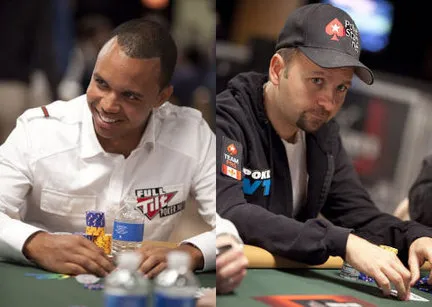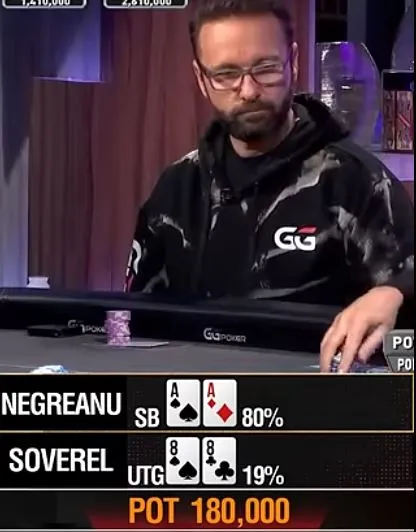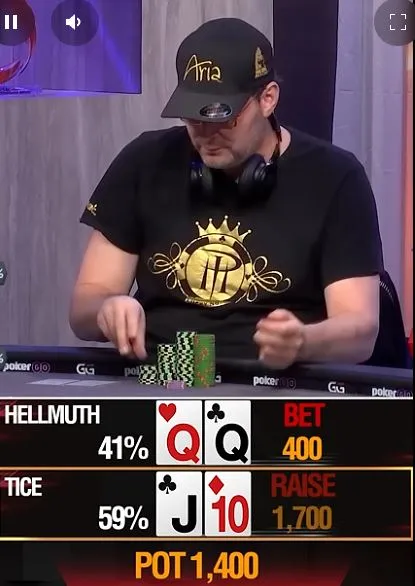🚨 He Got Pocket Rockets… and Still Faced a Nightmare! What Would YOU Do? 😱

Every poker player dreams of looking down at pocket Aces — those glorious A♠ A♥, often called “Pocket Rockets.” It's the best starting hand in No-Limit Hold’em, a statistical favorite against any single opponent.
But what happens when this dream hand becomes your worst nightmare?
In this unbelievable hand, we witness one of the most nerve-wracking scenarios imaginable: a player flops the nuts — or so they think — and is suddenly facing strange aggression, tricky boards, and psychological warfare.
Let’s dive into the madness.
Preflop action begins with our main player sitting in middle position. The moment he peeks down and sees A♠ A♥, the grin is almost unavoidable. He opens with a standard raise.
A late-position player calls. Then, surprisingly, the big blind reraises — not an all-in, but a sizing that suggests either a monster or a move. Is it kings? Ace-king? Or just someone trying to steal?
Our hero decides to slow play the Aces by smooth calling, opting to trap rather than re-raise. The original caller joins in, and we’re headed to a 3-way flop with over 20 big blinds already in the pot.
The flop peels off:
K♣ – 10♠ – 8♣
While this doesn’t immediately crush Aces, it’s far from safe. The coordinated texture opens up a host of possibilities — top pair, straight draws, and backdoor flush draws.

The big blind, first to act, bets big — applying maximum pressure.
Here’s where the mind games begin.
-
Was the 3-bet preflop a squeeze with air?
-
Did the opponent connect with the king?
-
Are they semi-bluffing with Q♣ J♣ or J♠ 9♠?
Our hero hesitates but calls. The third player folds. We’re now heads-up, and the pot has ballooned.
Turn: Q♦
Suddenly, the board gets a lot scarier. With K-10-8-Q, a jack now completes the straight. A player with J-9, J-A, or even 9-7 now has the nuts.
The big blind shoves.
And here it is: the ultimate test.
Do you trust your Aces? Or do you lay them down in the face of this aggression?
This is where poker isn’t just about math — it’s about reading people, controlling ego, and managing risk.
Calling and losing could mean disaster — especially in a tournament setting.
Folding might save your stack… or haunt you forever if it turns out to be a bluff.
Comments on this video exploded with reactions:
“I’m never folding Aces here. That’s weak.”
“Easy laydown. The story makes sense.”
“Depends on the opponent — do they overbet air or value only?”
The tension is palpable, and whether you’re a seasoned grinder or a casual fan, this moment is pure poker gold.

Even though Aces are statistically favored, board texture and opponent dynamics can make them incredibly difficult to play post-flop.
1. 💭 Don’t Get Married to Big Hands
This hand is a textbook reminder: preflop strength doesn’t guarantee a win. Many players lose their stacks because they refuse to fold “the best starting hand.”
2. 🧠 Think in Ranges, Not Just Hands
Instead of focusing on what you have, ask: “What can they have that plays this way?” When someone reraises preflop and barrels into a scary turn, they’re often not bluffing.
3. 🧊 Emotional Control Wins Games
A hero fold here may be the difference between surviving and thriving. Even if you’re ahead, knowing when to back off is a rare trait that separates good players from great ones.
Watching this hand play out is like riding a rollercoaster.
You start with the thrill of pocket Rockets, soar through the betting action, and then feel the drop as danger looms. The emotional ride captures what makes poker so compelling:
-
The pressure.
-
The psychology.
-
The “what if” moments.
If you haven’t seen the hand yet, watch it before reading the comments — and answer honestly:
What would you do?





